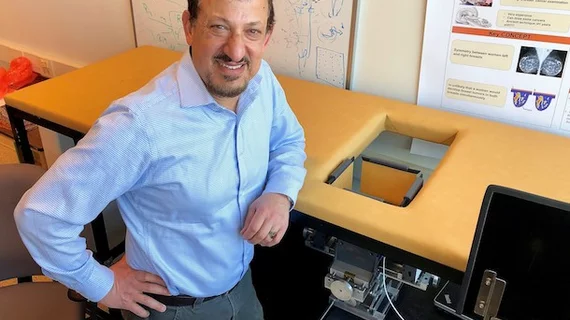Researchers have developed a cost-effective technique for breast cancer screening that does not require radiation exposure. The breakthrough revolves around advanced AI technology and “harmless” microwaves.
The team behind this new method has been hard at work for 15 years exploring the effectiveness of microwaves as a way to detect tumors. Cost-effectiveness was a priority from the beginning, as the team wanted to ensure health systems could save money when adapting the solution for daily use.
“Our top priorities were to make this detection-based modality fast and inexpensive,” researcher Omar Ramahi, a professor of electrical and computer engineering at the University of Waterloo in Ontario, Canada, said in a prepared statement. “We have incredibly encouraging results and we believe that is because of its simplicity.”
The prototype of this new technology includes a small sensor that emits microwaves, which “bounce back and are then processed by AI software on a laptop computer.” Specialists can then spot tiny—as in, less than one centimeter in diameter—differences between the tissue composition of the patient’s breasts.
“If women were screened regularly with this, potential problems would be caught much sooner – in the early stages of cancer,” Ramahi said in the same statement. “Our system can complement existing technology, reserving much more expensive options for when they’re really needed. We need a mixture, a combination of technologies. When our device sent up a red flag, it would mean more investigation was warranted.”
Ramahi and his colleagues have applied for a patent for their prototype and started a company to market and distribute the final solution once it has been fully cleared. Plans are currently being made to begin trials on patients within the next six months.

